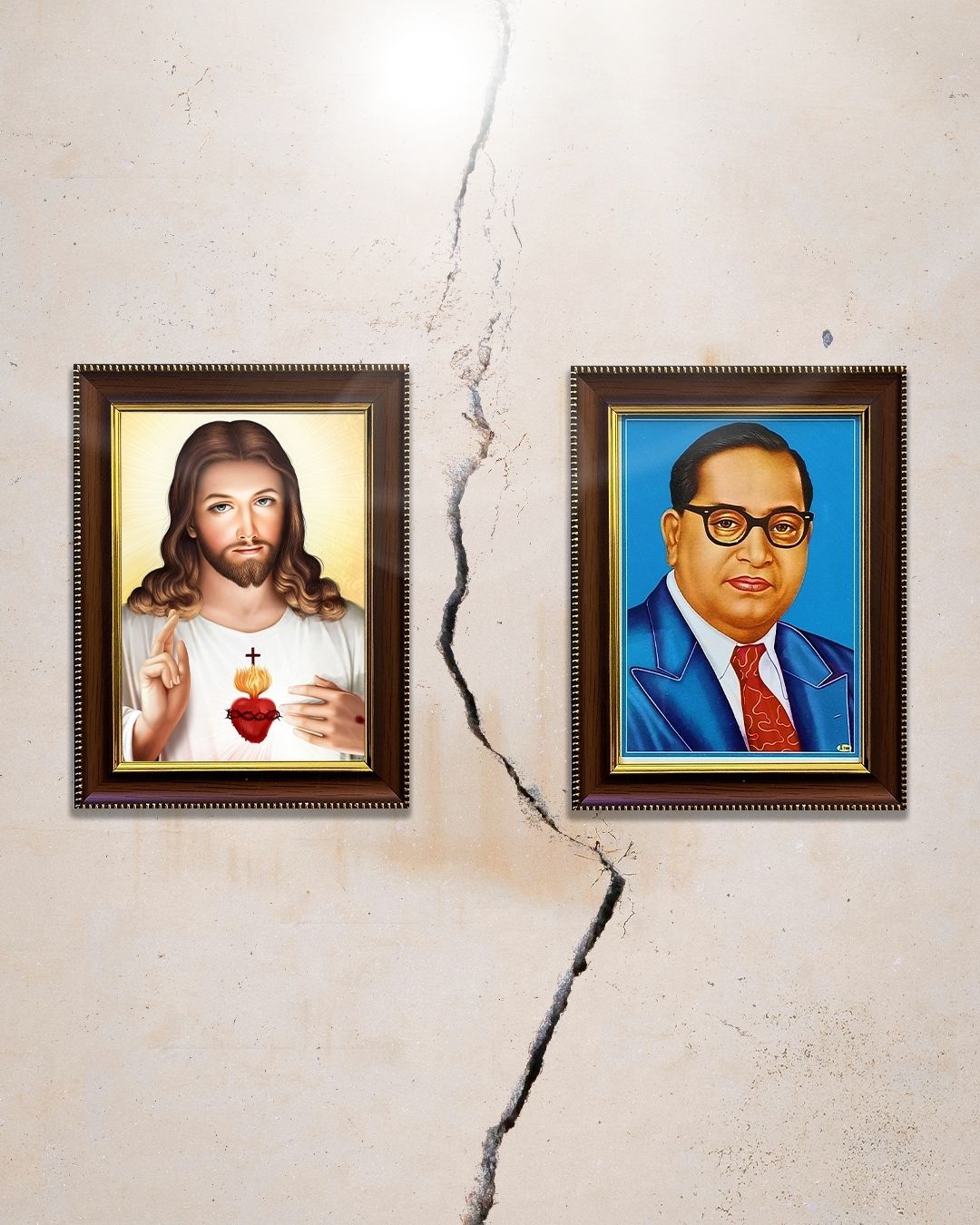A Dalit Christian child is told to not tell anyone their religion as their religion and caste can not co-exist together –since being Christian is supposed to cancel out being Dalit. Our government names are hindu-ish, often with a separate Christian name for home and church. Two selves, from the moment of birth. We are never called by our government names at home. We quickly learn where to say what name. In public a hindu name and in private Christian.
The 1950 presidential order only recognizes Dalits who are hindu, Buddhist or Sikh, excluding Dalits from other religions such as Christians and Muslims. Many Dalit Christians are forced to list their religion as hindu to be recognized for their caste, else they are categorized as OBC to be recognized for their religion.
“All the world’s a stage, And all the men and women merely players” Goffman’s theory of dramaturgy builds on this idea of people as actors, understanding social interactions as performances for different audiences with roles, scripts and props. He writes of the front stage as where the actors perform and back stage as where they get ready. Masked and unmasked territories.
What does it mean to be born into an identity that is seen as a contradiction? Contradiction being a condition of caste itself, only amplified in the Dalit Christian identity. What does this script and performance look like? Hyperconscious of surveillance, our bodies are held in constant tension. Many of us Dalit Christian kids grow up being taught to use certain words to talk about our Dalitness and Christianity, both inextricably intertwined. Ch for church. Mamsam (meat) for beef. Rendu mudu (two and three) for Mala Madiga. These code words are not so much for the stage as much as they are for our homes, structuring our psyches with the constant feeling of being watched.
The Dalit Christian existence is one of negotiation and navigation with state suspicion and surveillance weighing our thoughts and actions from the moment we are born. Right down to the act of naming our children. Jyothi, Kesava, Rani, Nikhil, Vijaya, Sudhakar. These are some names from my family. Not their actual names but stage names. Creating a duality in self.
Meet Bavani and Blessy. Beyond two names, there is a navigation of two selves. I am Bavani and I am also Blessy. In that order. I am forced to exist as Bavani publicly and Blessy privately. Reduced to a nickname, it is my Christian identity that could never be acknowledged on its own. I will always be Bavani first, on my papers and as a person. Two different people meant for two different stages, both kept separate from understanding the other.
How does the Dalit Christian identity form and exist in this state of dissonance? Essentially, on a national level we are forced to forfeit our religion for inclusion in the statutory category. This cannot be seen as an instance of forgery, rather a combined calculated sacrifice and negotiation for survival. The sacrifice being authentic recognition and in a broader sense, existence.
In the inaugural issue of Mooknayak published on January 31st 1920, Ambedkar writes that
“hindu society is like a tower, each floor of which is allotted to one caste. This tower has no staircase and therefore there is no way of climbing up or down from one floor to another. The floor on which one is born is also the floor on which one dies.”
Conversion is a step towards emancipation but it exists within the confines of the centuries old building that is caste. It is a way out of hinduism but not out of hindu society. Conversion holds the hope of a better future but does not change the past. It does not change history. Caste has its own way of operating within and outside of the church in Christian communities. I am not interested in legitimizing a Dalit Christian existence by proving our persecution. Yes, there are massacres, untouchability and murders but the presence of caste cannot be understood from suffering alone. What degree of suffering will mean rightful recognition by the state? The presence of caste is inescapable as it is the very structure of our society, in our names, how we live, what we eat, who we marry, how we die. Why is this burden of proving the existence of caste after conversion on us? Let the oppressors prove how they cease to hold caste after we convert.
The Dalit Christian identity is said to be invisibilised. Invisible to whom? What is invisible about my parents growing up in Malapalli. It is the state who is turning a blind eye. There is an acceptance of shame that is forced upon Dalit Christians. This shame serves a means of control for the state to shirk its responsibility to its citizens. Defining legitimacy in terms of state recognition, Dalit Christians exist in a state of injustice. We are either legitimately Dalit and (unjustly) hindu or we are legitimately Christian and (unjustly) OBC. “They put SC in their certificates” “But you are Christian, how can you be Dalit”
We must situate this shame not in the Dalit Christian body but rather than in a regressive state. This sense of shame runs twofold, internal and external. Internally, there can be guilt for being hindu on papers. There is judgement from within the Christian “community” for not trusting in God’s good will by “lying” in papers. Externally, there is often incredulous dismissal on what Dalit Christian even means.
Can there be dignity in living as someone you are not. Don’t we, as Dalit Christians, have the constitutional right to exist as our true selves. This negotiation cannot be written off as a personal fault or greed. It is a step towards historical justice taken in the face of a government which does not rightfully recognize its citizens. This goes beyond reservation or jobs, this is about statehood, dignity and citizenship. To be religious as a minority in this country is more than an act of resistance, it is sustenance. Religion can never exist in a vacuum as the status quo of our country is to be a hindu.
Bavani is a combination of my parent’s names, Balaswamy and Vani. I carry them and our histories wherever I go. Our lives and our names hold agency. Blessy was their way of keeping the Christian in me alive. To keep me safe. Whenever someone asks me in Telugu what my name is, I always say Blessy. The language I was raised in and the person I was raised as. The State can’t take her away from me. My seed to manuski (dignity).

